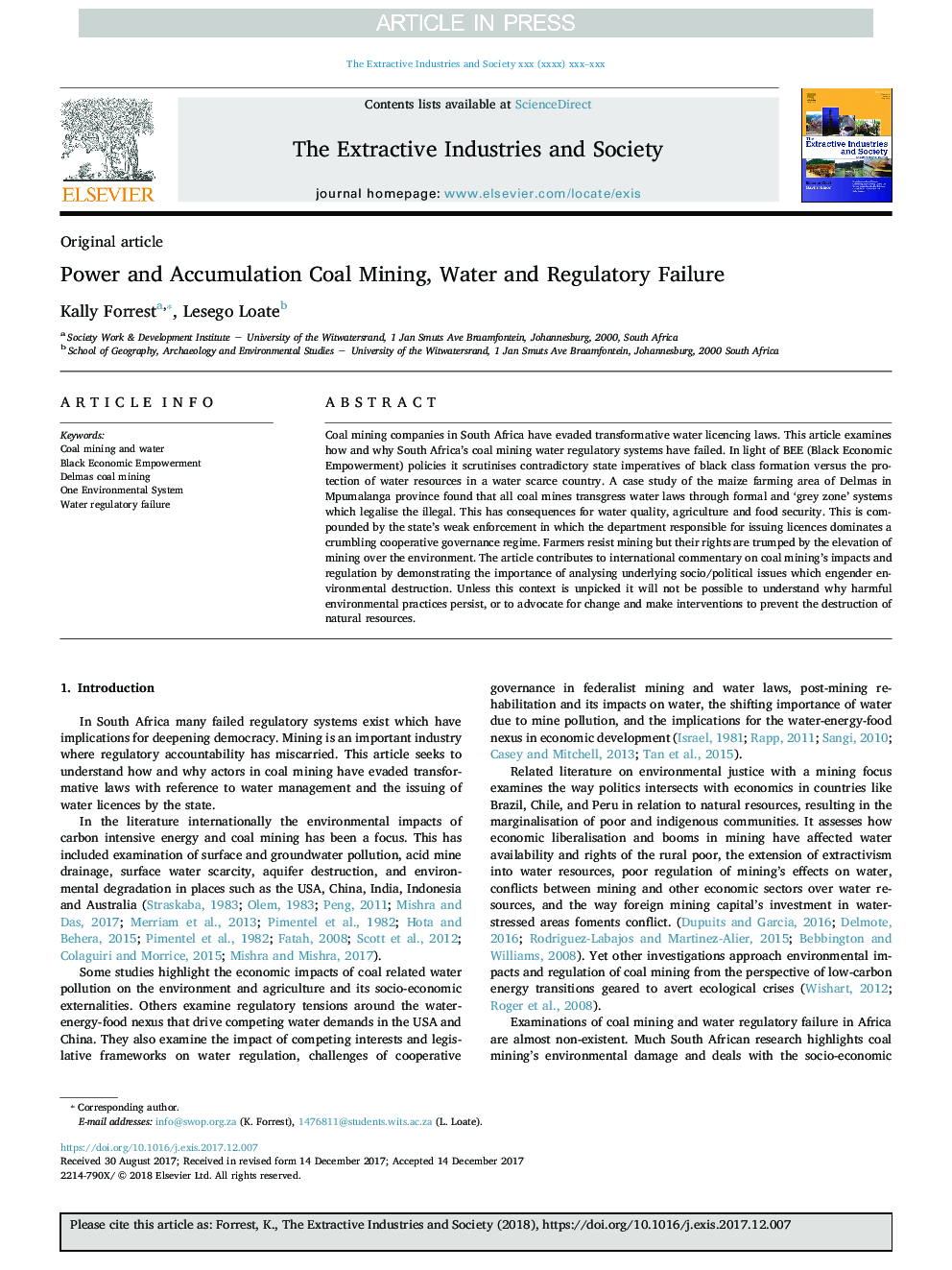| Article ID | Journal | Published Year | Pages | File Type |
|---|---|---|---|---|
| 7454276 | The Extractive Industries and Society | 2018 | 11 Pages |
Abstract
Coal mining companies in South Africa have evaded transformative water licencing laws. This article examines how and why South Africa's coal mining water regulatory systems have failed. In light of BEE (Black Economic Empowerment) policies it scrutinises contradictory state imperatives of black class formation versus the protection of water resources in a water scarce country. A case study of the maize farming area of Delmas in Mpumalanga province found that all coal mines transgress water laws through formal and 'grey zone' systems which legalise the illegal. This has consequences for water quality, agriculture and food security. This is compounded by the state's weak enforcement in which the department responsible for issuing licences dominates a crumbling cooperative governance regime. Farmers resist mining but their rights are trumped by the elevation of mining over the environment. The article contributes to international commentary on coal mining's impacts and regulation by demonstrating the importance of analysing underlying socio/political issues which engender environmental destruction. Unless this context is unpicked it will not be possible to understand why harmful environmental practices persist, or to advocate for change and make interventions to prevent the destruction of natural resources.
Related Topics
Life Sciences
Environmental Science
Management, Monitoring, Policy and Law
Authors
Kally Forrest, Lesego Loate,
